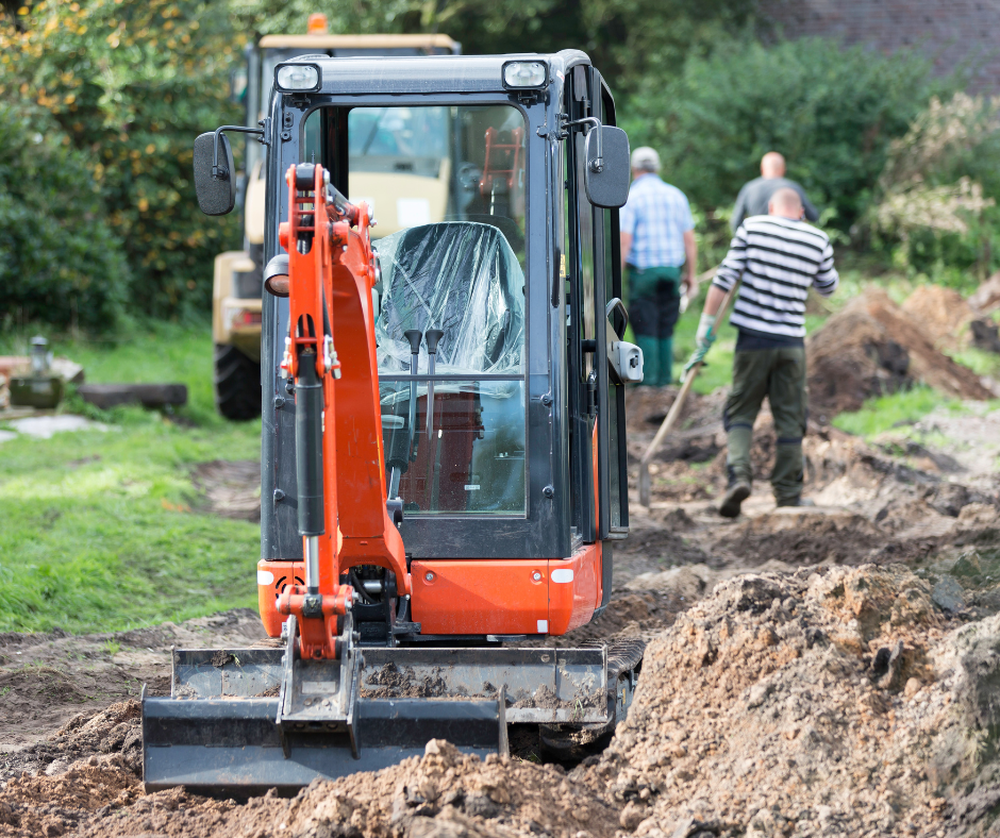Can Anyone Hire a Mini Digger in the UK?

Hiring a mini digger in the UK can be a practical solution for a wide range of tasks, from landscaping to small construction projects. These compact and versatile machines offer the power of larger excavators while being able to work in tighter spaces. However, many people wonder if anyone can hire and operate a mini digger. This article will explore the key requirements and considerations for hiring a mini digger in the UK, including whether a licence or training is needed, the documentation required, and best practices for safe operation.
What is a Mini Digger?
A mini digger is a small, versatile piece of construction equipment used for digging, excavating, and moving materials. Typically weighing between 1 and 10 tons, mini diggers are favoured for their ability to work in confined spaces where larger excavators cannot operate. These machines are equipped with a hydraulic system that powers the boom, arm, and bucket, making them efficient tools for various tasks, from landscaping to small-scale construction.
Do I need a Licence to Operate a Mini Digger in the UK?
In the UK, you do not need a specific licence to operate a mini digger when working on private land or worksites. However, if you plan to drive the mini digger on a public road, you will need a valid driving licence.
If you intend to use the mini digger on a commercial site or for business purposes, you may require an NPORS (National Plant Operators Registration Scheme) or CSCS (Construction Skills Certification Scheme) card. These certifications demonstrate that the operator has the necessary skills to handle the equipment safely
What Are the Requirements to Hire a Mini Digger?
Two forms of identification
Proof of address (e.g., utility bill, bank statement)
Deposit (refundable at the end of the hire)
Do I need any Training to Operate a Mini Digger?
In the UK, no formal certification or training is required to operate a hired mini digger for private or domestic use. However, it's important to be familiar with how the machine operates, as mini diggers are heavy and can be dangerous. Without proper knowledge, there is a risk of accidents, property damage, or personal injury. Many hire companies provide basic operational guidance, and it is highly recommended to take advantage of any tutorials or instructions offered.
Benefits of Proper Training and Certification
1. Safety First
Receiving proper training and certification not only ensures you are compliant with regulations but also enhances safety on the job site. Well-trained operators are less likely to make mistakes that could lead to accidents or injuries.
2. Increased Efficiency
Training programs teach operators how to maximize the machine's capabilities, resulting in more efficient work and potentially reducing project timelines.
3. Liability Protection
Being certified can protect you and your employer from liability issues. In the event of an accident, having proof of training can be crucial in legal or insurance matters.
4. Enhanced Job Opportunities
Many employers prefer or require certified operators, so obtaining a mini digger certification can enhance your job prospects and earning potential.
Best Practices for Operating a Mini Digger
Regardless of whether a specific licence is required, following best practices is crucial for safe and effective operation:
1. Conduct Pre-Operation Inspections
Before operating a mini digger, conduct a thorough inspection to ensure all components are functioning correctly. Check fluid levels, track conditions, and the state of the bucket and hydraulic systems.
2. Understand the Controls
Familiarize yourself with the controls and the operation manual. Understanding how to operate the machine safely and effectively is essential for successful and safe digging.
3. Be Aware of Your Surroundings
Always be aware of your surroundings, including nearby workers, obstacles, and overhead power lines. Maintaining a safe distance from hazards is critical for safe operation.
4. Wear Proper Safety Gear
Wearing the appropriate personal protective equipment (PPE), such as hard hats, gloves, and steel-toed boots, is essential for ensuring your safety while operating machinery.
5. Practice Safe Loading and Unloading
When loading and unloading materials, ensure the mini digger is on stable ground and follow safe practices to prevent tipping or losing control of the load.
Conclusion
In summary, while almost anyone can hire a mini digger in the UK for personal or domestic use, there are still important factors to consider. Though no formal licence is required for private land use, proper understanding of the machinery and safety practices is essential. For commercial projects, certifications like NPORS or CSCS may be necessary. By following best practices and ensuring you have the appropriate identification, deposit, and insurance, you can safely and efficiently make use of a mini digger for your project, whether it's for personal or professional purposes.
Author: James Duncan
14 October 2024
Still have questions?
You can send us message, call or chat live with an expert for personalised advice.
Related Guides
:quality(80))
What is the Difference Between a Mini Digger and a Micro Digger?
:quality(80))
What is a Micro Digger? A Complete Overview
:quality(80))
Essential Equipment for Operating a Mini Digger: A Complete Guide
:quality(80))
What Size Mini Digger Do I Need?
:quality(80))
Essential Safety Tips for Operating a Hired Mini Digger
:quality(80))
Do You Need Insurance to Hire a Mini Digger?
:quality(80))